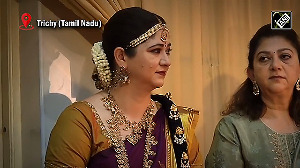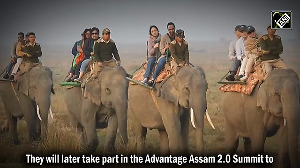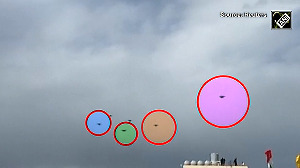Notwithstanding their stunning performance in Nepal Constituent Assembly polls, the United States has said there was no change in the status of Maoists whom it regards as "terrorists", even as it hinted towards a possible review of that position.
"We have an organisation being placed on the list of designated foreign terrorists organizations. (It) has legal requirements that are placed on us. We have to honour those legal requirements and we'll certainly do so in the case of Nepal," State Department's Deputy Spokesman Tom Casey said.
"To the broader question... certainly to the extent, you have an organisation that moves away from violence and terror and participates in a political process and engages in those kinds of legitimate activities, that would certainly, I think, give people an opportunity to at least look again at that situation and that organisation," he said.
"But at this point, you know, there's no change in their status and we'll follow the law as appropriate," Casey added.
The United States had first put the former rebels on its list of terrorist organisations in 2003.
Last week, a top Communist Party of Nepal-Maoist leader had said that talks were underway with US officials for removing the "terrorist tag" imposed on the Maoists during their decade-long civil war.
"We are requesting them (United States) to remove the terrorist tag that they have put for our party... our doors are always open to all US officials if they want to talk to us," C P Gajurel, a central committee member of the CPN-Maoist had said.
The CPN-Maoist is expected to head the new government after emerging as the largest party, bagging 120 of the 240 seats where voting was held under the direct electoral system.
Former US president Jimmy Carter, who was in Nepal to monitor the constituent assembly election on April 10, had also said the results indicated a major transition for the Himalayan state.
"If the Maoists do gain a substantial share of power I hope the United States will recognise and do business with the government," Carter had said.
Speaking on the issue on Monday, Casey said, "I'm not sure what, if any, discussions might be going. As you know, there are legal criteria that are involved here.
I'm sure to the extent that any movement ends its association with terrorism and can do so in a way that would match those or meet those legal hurdles, that we would certainly take a look at it," he added.






 © 2025
© 2025